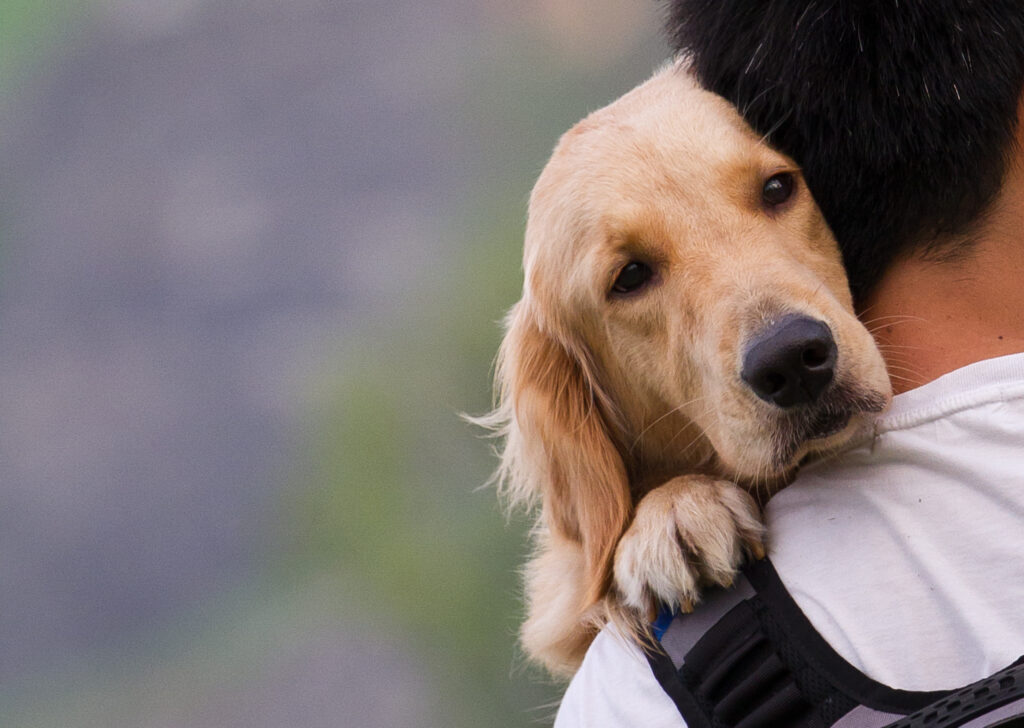Since her earliest childhood, Nadine Ghorayeb feels close to animals. It is therefore only logical that this lawyer from the Paris Bar decided to defend them in court. Although there is no specialization in “animal law” in the French bar associations, this professional has been practicing this law for years, which recently earned her a European award. Meeting with a dedicated lawyer.

Where does your commitment to animal welfare come from?
Since birth I have grown up with animals. Literally, since from the crib I had a Siamese cat who slept next to me and to whom I was very attached. My family has always raised me with respect and love for animals. So growing up, I got into the habit of feeding strays, for example. During my travels in different countries and especially in the Middle East, I saw a lot of stray cats or dogs that were starving and for me it was normal to feed them.
Then, with the development of social networks and the infancy of the Internet, I saw terrible videos circulating. So I decided to act and work effectively in the field by becoming an active member of an animal protection association. In the course of time, I have been entrusted with cases in the context of my legal profession. That’s how I started practicing animal rights. Today I feel that the number of people who want to exercise this right has increased. People are increasingly sensitive to animal welfare and their protection. There is training in this area, but this phenomenon should not be just a fad. For me, this dedication is innate.
You are talking about animal rights, do they exist as such in France?
Although there is a lot of talk about specializations, such as employment law or family law, there is no specialization in animal law at the level of the French Bars. A committee of the Paris Bar is working on the development of animal rights. We may hope, I certainly hope so, that this mention of specialization will soon see the light of day.
But of course animal rights do exist.. It is often the same lawyers who master this law very well and regularly practice it. Personally, I have been fortunate to benefit for many years from the expertise of my colleague Patrice Grillon, who has been practicing this law for over 20 years and with whom I have collaborated on several dossiers. So I forged my experience in this field through practice.

What kind of animal rights cases can you handle?
It should be clear by now that animal rights are not limited to trials before the police or criminal court. It’s bigger. It can be practiced within ministries, in veterinary inspections, within associations such as lawyers, in agricultural companies, local authorities, etc.
The files I deal with concern, for example, cases of abuse, serious abuse and cruelty, neglect or sexual abuse of animals. Generally, I therefore deal with cases where the animal is a victim of the wickedness and cruelty of humans but I won’t stop there. I can advise both private owners of an animal and animal protection associations on various legal issues surrounding the animal.
To give another example, I am currently defending the interests of an association that will be expelled and whose cats will have no refuge within a month, if the mayor of the municipality does not offer them another shelter. But I can also intervene on behalf of associations in cases in the field of employment law or in another area of law.
Is it difficult to bear the voice of animals and defend them in court?
Yes. It’s not easy because we must fight so that the guilty are punished in proportion to what they have donewhich is often not the case.
In order to protect animals by repressive means, there are several offenses that are punishable by penalties that are either a fine (the guilty person risks a fine) or an offense (the guilty person risks imprisonment, a fine and other additional penalties as the main penalty). If the mistreatment of an animal is committed by an individual, it is an offense and if it is committed by a professional, it is a misdemeanor.
For certain offences, prison terms are provided as the main principle. However, it happens that some magistrates are timid when it comes to sanctions and sentence the perpetrators to suspended prison terms. If we want things to change drastically, there should be no hesitation in pronouncing really frightening phrases. The recent law of 30 November 2021, aimed at combating animal cruelty and strengthening the bond between animals and humans, marks an important step in that direction.

What will this new law change for animal defense?
Many things. She already has tougher penalties for pre-existing violations. To give an example, the penalties for the crime of serious assault and cruelty to an animal have gone from 2 years in prison and a fine of 30,000 euros to 3 years in prison and a fine of 45,000 euros. If there are aggravating circumstances, these penalties are increased to 4 years in prison and a fine of 60,000 euros. Finally, if these facts lead to the death of the animal, the defendants risk a prison sentence of 5 years and a fine of 75,000 euros. The same sanctions apply to cases of abandonment.
Next one, the new law also created new categories of offenses. It’s about “sexual assaults on a pet and tamed or kept in captivity”. Such acts are punishable by 3 years in prison and a fine of 45,000 euros, or more if there are aggravating circumstances. New violations will also allow better suppress acts of zoopornography and in particular the dissemination of depictions of abuse, cruelty, mistreatment or sexual abuse of an animal.
With the creation of these new categories of offenses and the tightening of penalties, it is hoped that the penalties imposed will be deterrent and stricter. The associations do a lot of work to raise awareness among magistrates and public prosecutors in this area.
Isn’t there also a question of raising awareness of the general public, who are not necessarily aware of the subtleties of French law?
Of course, this new law also includes awareness about animal cruelty. In particular, training on this subject is intended to be provided in the framework of the Universal National Service and even in primary school, which is very good because not everyone grows up with animals or is not sensitive to their fate. Children need to learn that hitting an animal is against the lawthat adopting an animal entails responsibilities, etc.
Very often, abusers are in denial. They will affirm that they love animals, but they do not bring them the necessary care. The animals have no water and food, are alone, sick and often live in their excrement and dirt. I think that these people do not know the law but above all do not or no longer have the means to take care of their animals and realize this afterwards. Usually the associations will ask them to give the animals. This awareness work is therefore necessary so that people are aware that an animal is a living being to which they have obligations.
Generally, people should be more alert, that they take the reflex to contact the associations if they witness abuse. They can also call the police and ask for a crew if they hear a dog howling. There are a whole range of behaviors to adopt.

Last December you received a European Legal Award for your action in favor of animal welfare. What does this distinction mean to you?
It is the first time that a prize is awarded in the category ‘Animal welfare’, which did not yet exist. Receiving such an award, in such a category, naturally moved me immensely personally. I have chosen to dedicate my award to animals, animal protection associations and their volunteers. To me, this prize is primarily a recognition of animal welfare and animal rights at European level.
Legislation is changing in Europe. For example, a few days after the awards ceremony, Spain finally recognized that animals were living things. Animal rights are gaining ground, but should not become a fad. As a polyglot, I would love to contribute in this area abroad, helping them develop legislation that goes in the direction of animal protection and takes their welfare into account.
As for France, progress has also been made, but some topics are still passed over in silence, such as hunting or bullfighting. To better defend the animals, I thinka specific category should be created regarding the legal status of the animal. Since 2015, the Civil Code recognizes animals as living beings with sensitivity, without distinction of species. However, they remain subject to the legal regime of movable property like any piece of furniture or object, which is a bit contradictory. This right is a right sui generis. It goes without saying that an animal cannot be treated as an object that can be freely disposed of, hence the imperative need to create its own legal regime for the animal..
In 2018, the first legal code for animals was born in France. A first national, but also a European one. This book, which brings together all applicable animal legislation, was created by a team of animal rights specialists and the Foundation’s 30 million friends. Like Nadine Ghorayeb, the Foundation is now defending a new legal move: to make the legal status of animals (that of property) coincide with their category (that of living and sentient beings). Case follows.